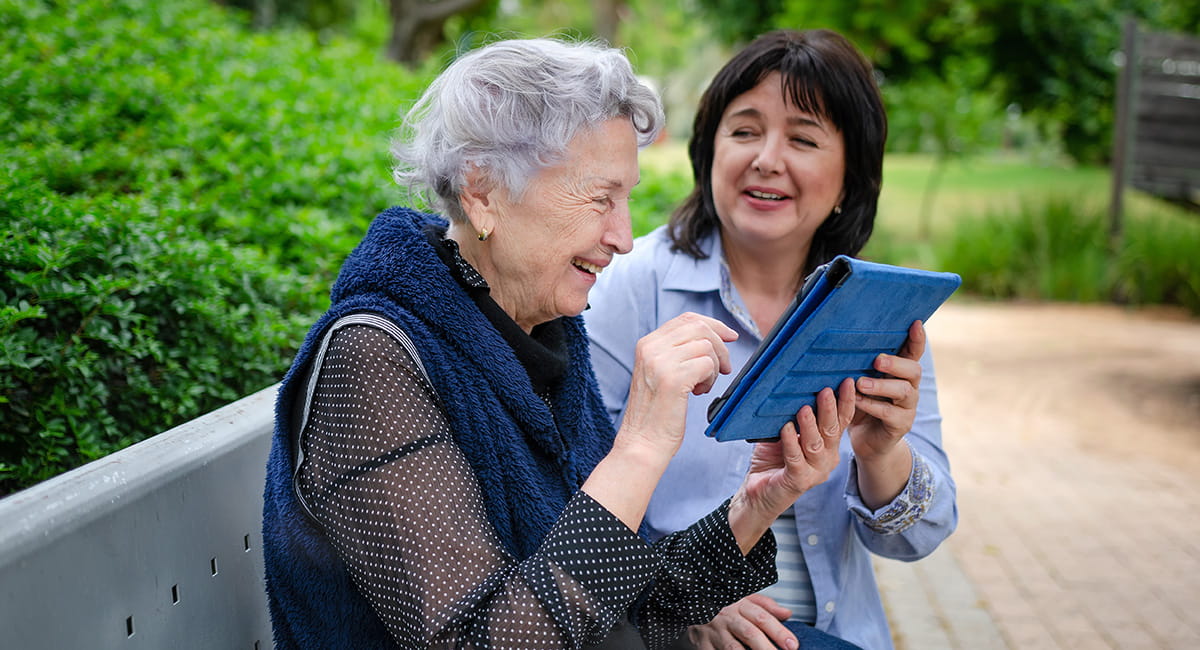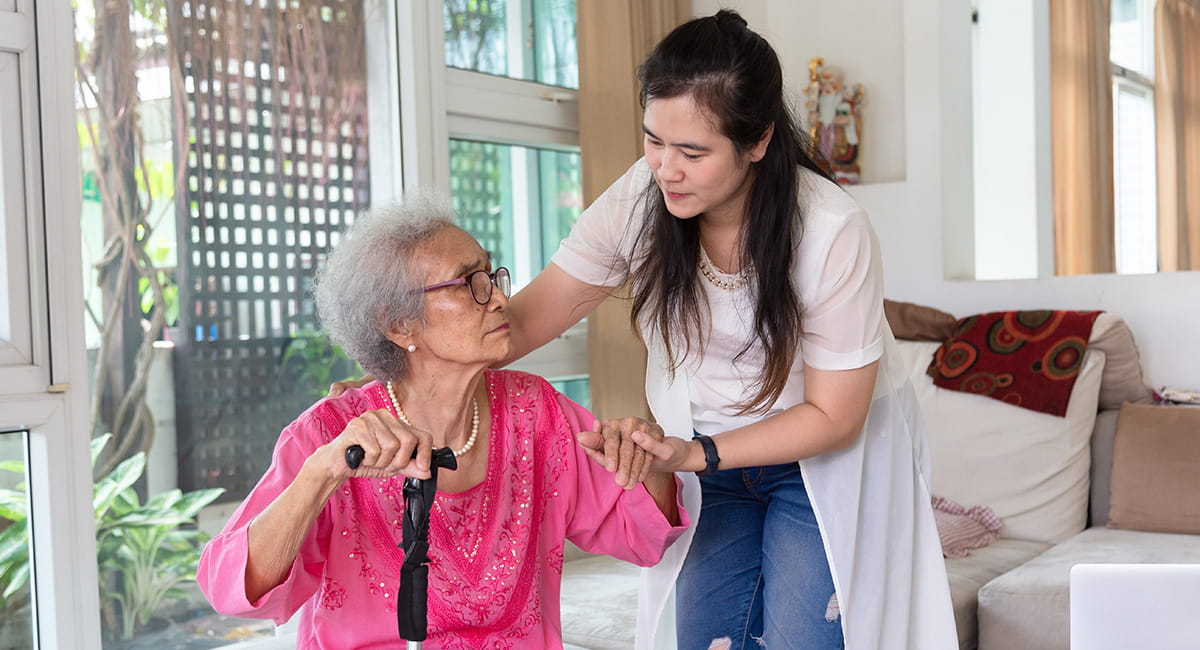“Carers often don’t ask for help or accept help, so sometimes one of the key things you can do is be persistent in checking in.”—Judith Abbott, CEO, Carers Victoria
Key points
- While caring for a loved one can be rewarding, it can also be really tough—and can impact on the carer’s social, mental, physical and financial wellbeing.
- It’s important to be persistent when supporting carers—keep checking in, keep offering help and keep including them in invitations.
- Giving carers the spotlight and encouraging them to share their experiences can be a really valuable way to provide support.
“The thing about unpaid carers,” says Judith Abbott, CEO of Carers Victoria, is that, at some point, “everyone is going to be one, know one or need one.”
Providing care for a loved one can be incredibly rewarding, but it can also be really, really tough, potentially impacting on the caregiver’s social, mental, physical and financial wellbeing.
In fact, according to Australian Unity Wellbeing Index research conducted in partnership with Deakin University, carers have the lowest wellbeing of any group, including unemployed people.
If someone you care about is caring for another, here is some expert advice on how you can offer them the support they need.

What counts as care work?
According to the Australian Bureau of Statistics (ABS), there are more than 2.65 million carers in Australia. That means one in 11 of us is caring for someone else—but what does that mean, exactly?
“When we use the language of ‘carer’, we’re talking about friends, family, neighbours and others who provide unpaid support to people who need some assistance to live at home,” explains Judith. “That might be everything from people who have mental health challenges, disabilities, chronic health conditions and/or age-related conditions.”
Because carers’ experiences vary so widely, our experts say it’s really important not to assume you know what someone is going through. The best way to find out is to ask, and to really listen to their answer—without trying to fix things or encouraging them to look on the bright side (aka toxic positivity).
A tendency to downplay their own needs
Bear in mind that it might be difficult for your friend or loved one to put themselves in the spotlight. Carers can get used to the focus being on the person they’re caring for, and as Judith observes, “can really discount their own health and wellbeing”.
“The carer learns that they are the secondary person here, and that the most important person that needs to be looked after is the person with special needs,” says Sally Shaw, psychologist and owner of Focussed Health Psychology. “They keep deflecting, because they don’t want to take the attention. They’re not sick, so they feel almost guilty if they’re taking any of the attention or prioritising themselves.”
Carers often feel as though they shouldn’t complain or seek support, she adds, despite the fact that, as a group, they can really struggle.
“Carers experience loneliness at over twice the rates of other Australians,” confirms Judith.
“They often experience poorer mental health and wellbeing, and they’re often financially worse off, because the time they take to care for someone reduces their opportunities to look after themselves and it sometimes reduces their capacity to hold paid employment. Or if they do, they really have a huge juggle.”

How to show your support
If you know someone who is caring for another, these are some of the things that Judith says can really help:
-
Being able to meet them where they are, on their terms.
-
Asking about their experiences as a carer.
-
Listening without judgement.
-
Providing practical support—like offering to run errands, popping around some food, or just checking in every so often so they know they’re not alone.
“Carers often don’t ask for help or accept help,” says Judith, “so sometimes one of the key things you can do is be persistent in checking in.”
Sally agrees. “It's really important to keep up friendships with the people that are caring for someone else,” she says. “Try not to drop off or disappear. And I would even take that one step further and say: keep including your friends who are carers in the invitations, even if they keep saying no.”
The value of talking to people who really “get it”
Nobody understands the role of a carer more than other carers.
“If it’s appropriate, you could check to see if your friend or loved one is linked in with a carer support group, or an agency that provides support to carers in their community,” says Sally.
Judith notes that there are a number of state and territory programs for carers, as well as the federally funded Carer Gateway, which offers emotional, practical and financial support. There are also any number of more-niche online communities.
“One pro-VID [positive result of COVID] is that we’re all much more used to Zoom”, adds Sally, “so online carers groups have increased recently.”
Sharing stories with people who really “get it” can be a relief—as can a bit love, understanding and support from friends, workplace, community and family.
As Judith says, “Anything you can do to show you care about them can make a huge difference.”
Talking Points
Here are some things you could ask a carer to encourage them to open up about their life:
-
Tell me about your role as a carer.
-
How does being a carer impact on your life?
-
What are your biggest challenges?
-
What do you need, or how can I best support you?



